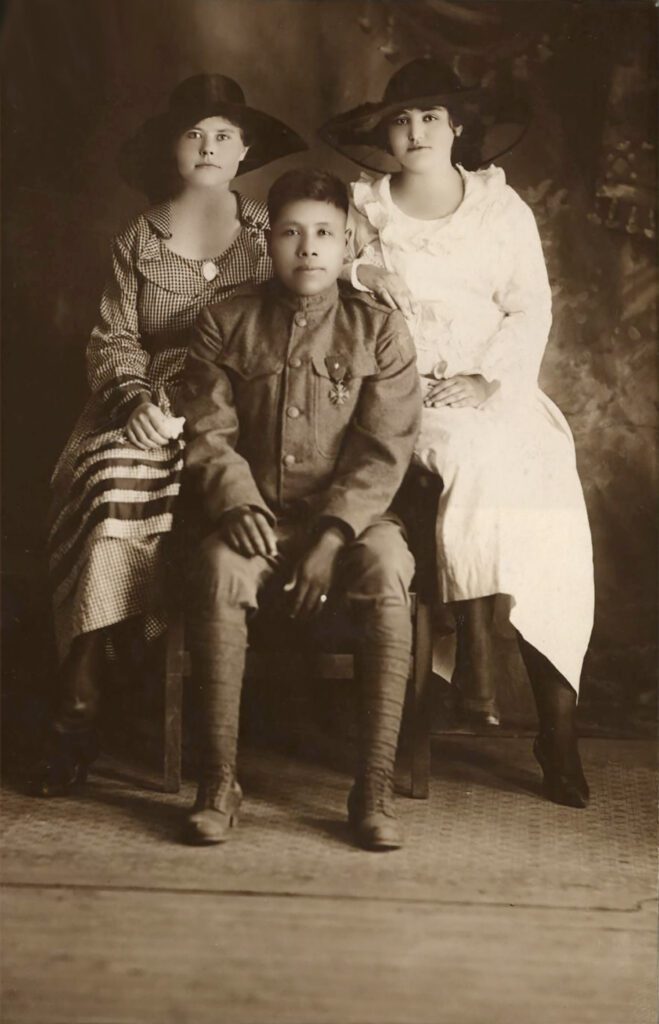This month marks the 110-year anniversary of the beginning of the first World War in Europe. And while the United States would not enter the war until 1917, the effects of wartime were felt around the world. Oklahoma was not exempt. So while the assassination of Archduke Franz Ferdinand in Sarajevo may have felt completely removed from life in rural Oklahoma, the reality was a different story.
“There was widespread reluctance in Oklahoma, and in the United States in general, about getting involved in [the war],” says Matthew Pearce, Ph.D., who serves as state historian with the Oklahoma Historical Society. “But where Oklahomans first felt an impact when the war broke out was in agricultural prices.”

Due to German blockades of British and French ports, as well as patrolling German U-boats in the Atlantic, many Oklahoma agricultural exports such as cotton and wheat were unable to get through. Prices for these goods then plummeted. But the pendulum would swing in the other direction soon.
“As the United States became more and more involved with supplying the Allied powers and then directly getting involved militarily, food prices increased,” says Pearce. He shares that it then became farmers’ perceived patriotic duty to plant more crops, with slogans such as “food will win the war” becoming the norm.
Ultimately, the effects of World War I in Oklahoma would be a driving force into the Dust Bowl era and the Great Depression. Pearce explains that agricultural demands of the war led to an increase in mechanization of farming, price stabilization at a federal level for the first time, and an increase in crop production to meet the war-time need for food. But these three changes, after the war ended, put Oklahoma farmers into an impossible situation: Federally-driven price stabilization ended, but due to expanded farming operations and increased (often financed) equipment holding, they were compelled to continue farming at war-time capacities. This was at least part of the reason for the over-farming situation of the Dust Bowl.
The worldwide conflict would forever change the landscape of this brand new state. Pearce explains that like many Americans, Oklahomans were at first reluctant to get involved in the war in Europe. There was very active membership in the Socialist Party in Oklahoma at the time and they in particular saw WWI as ‘a rich man’s war’ but ‘a poor man’s fight.’
“Oklahoma is still very much a rural state [at the time], but [in regards to] agricultural prices, it’s nonetheless tied to those international markets,” says Pearce. “And so [Oklahoma] is going to have to get involved whether it likes it or not.”
The Importance of Code Talkers
During World War I, a special group of Choctaw Native Americans from Oklahoma made a major impact.
Pearce explains that commanding officers on the Western front were concerned that the Germans had cracked their communications codes. Then one day, they overheard some Choctaw soldiers conversing in their native language.
After some initial testing and the development of codes for military terms, the Choctaw Code Talkers were able to serve the war effort by communicating in their native language over the radio from one command post to another. The message would then be decoded on the opposite end by another Code Talker. According to Pearce, there were 19 original Choctaw Code Talkers, and later citizens of the Cherokee, Cheyenne and Osage tribes joined the effort, too.






















